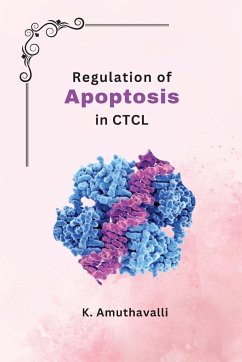Regulation of apoptosis in Cutaneous T-Cell Lymphoma (CTCL) is a complex process that involves multiple molecular pathways. In this book, author K. Amuthavalli explores the role of two compounds, hesperetin and suberanilohydroxamic acid (SAHA), in regulating apoptosis in CTCL. Hesperetin is a flavonoid found in citrus fruits that has been shown to have anti-cancer properties. SAHA is a histone deacetylase inhibitor that has been approved for the treatment of CTCL. The author investigates the molecular mechanisms by which these compounds induce apoptosis in CTCL cells and explores the potential of using these compounds as therapeutic agents. The book provides a comprehensive overview of the current understanding of apoptosis regulation in CTCL and the potential for developing novel therapeutic approaches using hesperetin and SAHA. It also discusses the challenges and limitations associated with the use of these compounds as therapeutic agents. Overall, this book is a valuable resource for researchers and clinicians working in the field of CTCL and cancer biology, providing insights into the molecular mechanisms of apoptosis regulation and the potential for developing new treatments for CTCL.







